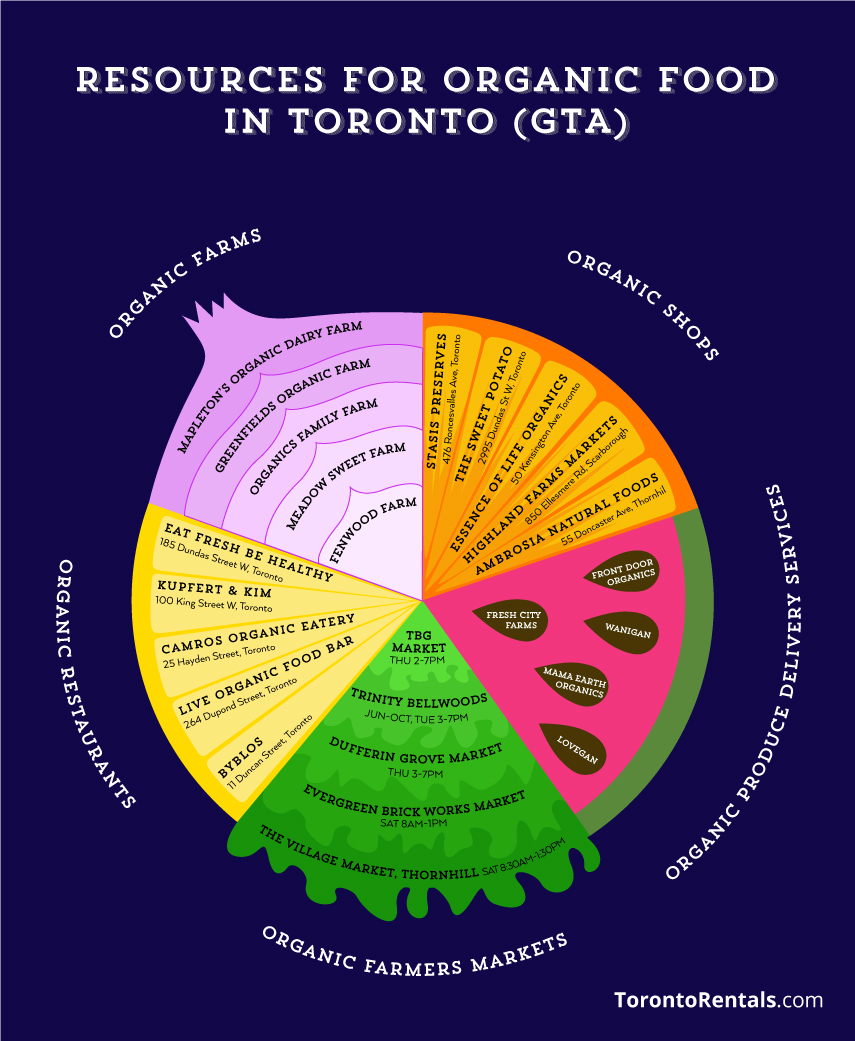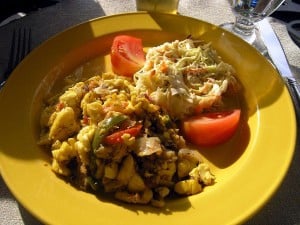In Toronto, we’re a fickle bunch. Sure, we love eating local/healthy/organic, while sometimes, we chow down on duck ragout poutine and cinnamon apple-stuffed french toast topped with ice cream and whipped cream.
Yes, it’s good to be a Torontonian because living here means options – especially when it comes to food. To indulge your healthy side, we’ve put together an infographic to help you have a database for reference when you just need a fix of healthy grub.

What is organic food?
Organic food itself isn’t actually healthier than non-organic food. Organic food is usually grown n a more sustainable way – usually that means the farm that grew the food doesn’t use synthetic pesticides and herbicides. The farming practices might also better support biodiversity and preserve the natural cycle of the Earth.
Why eat organic food?
Most people choose to eat organic because they want to prevent synthetic and potentially harmful pesticides and herbicides from entering their bodies through food. There’s a big misconception among people that organic food is healthier than non-organic food; some people think that organic food contains fewer calories than non-organic. This has not been proven to be true.
Others argue that organic food tastes better than non-organic; once again, there’s no conclusive evidence to prove such a statement.
However, what is clear is that organic food, including produce, meats, dairy and more, are produced more sustainably, creating less pollution and introducing fewer synthetic, harmful products into our bodies through consumption.
Further, organic foods are non-GMO, or genetically modified. For many proponents of organics, this is a major reason to choose organic foods over non-organics.
How are organic meats and dairy different than non-organic?
One of the areas where organic food production makes the biggest difference is with meats and dairy. According to HelpGuide.org, meats and dairy that were produced non-organically:
- Typically given antibiotics, hormones and GMO feed grown with pesticides
- Livestock are given growth hormones for faster growth.
- Antibiotics and medications are used to prevent livestock disease.
- Livestock may or may not have access to the outdoors.
Meanwhile, organically produced meats and dairy:
- No antibiotics, hormones, GMOs or pesticides are given to animals
- Livestock are given all organic feed.
- Disease is prevented with natural methods such as clean housing, rotational grazing, and a healthy diet.
- Livestock and milking cows must graze on pasture for at least four months a year, while chickens must have freedom of movement, fresh air, direct sunlight and access to the outside.
Local vs. Organic
There’s a huge debate raging on about whether it’s better to choose local foods, or organic foods. Rather than get into that debate, why not choose a hybrid of both? Check out our handy infographic for local Toronto markets, restaurants, food delivery services, shops and farms that sell organic foods that are often local as well.
Weigh in: Is it better to eat local, or organic?




